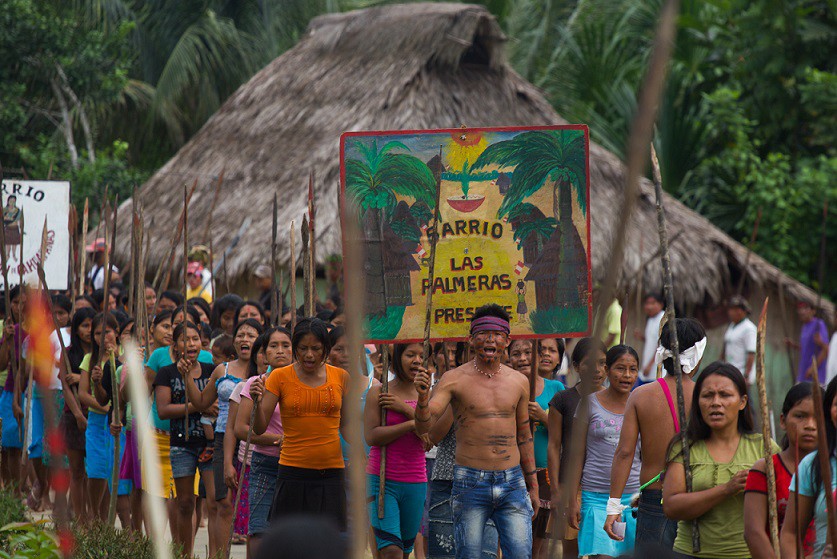Heidi Brandenburg co-founded Yachaywasi Films to explore social and environmental issues and challenge audiences to rethink preconceptions. Born in Paraguay and raised in Peru and Germany, she now lives in Washington, DC. (Press materials)
“When Two Worlds Collide” will premiere at the 2016 Hot Docs Film Festival on May 2. The film is co-directed by Matthew Orzel.
W&H: Describe the film for us in your own words.
HB: “When Two Worlds Collide” follows the story of an indigenous leader and his people fighting to save their homeland against a government that favors wealth over ancient values. The film shows us how complex, tragic, and real the battles of a political war can be when conservation and development clash.
W&H: What drew you to this story?
HB: After film school my friends and I wanted to make a movie. Since I am Peruvian and had already done a short film in Peru, it made sense to continue exploring the country’s diverse cultures.
After months of researching, I came across an article about the 2009 US-Peru Free Trade Agreement opening up the Peruvian Amazon to multinational investment. The Peruvian Congress used the occasion to legislate a massive bypass of indigenous rights in order to exploit their ancestral lands.
Within a year, 72 percent of the Peruvian Amazon had been parceled out to oil and gas concessions. There was a huge outcry by national NGOs and the international community. My co-filmmakers — co-director Mathew Orzel and producer Taira Akbar — and I were made witnesses to the unprecedented land-grab that followed.
We watched as contamination cut deeper into the fabric of the indigenous people’s way of life, which depends on the well-being of the rainforest. We met Pizango at the right time to capture his story and that of his people, without knowing what lay ahead.
W&H: What do you want people to think about when they are leaving the theater?
HB: We hope viewers will walk away questioning the balance between development and nature. We have to do something about continued worldwide deforestation. The indigenous peoples can’t safeguard the rainforest alone, and I hope our film inspires viewers to step up and act.
W&H: What was the biggest challenge in making the film?
HB: I wouldn’t know where to start. Besides political threats, tapped phones, near death experiences and seven years of production, the biggest challenge was probably crafting a coherent storyline. Putting together a series of interrelated story webs was not only challenging, but at times heartbreaking.
We were witnesses to several simultaneous stories as they unfolded. Deciding what we could realistically include in the scope of this one film required constant discussion, and sad decisions to leave out whole characters or twists and turns to the story. We owe a huge debt of gratitude to our talented editor, Carla Gutierrez, without whom we couldn’t have delivered our message so powerfully.
W&H: How did you get your film funded?Share some insights into how you got the film made.
HB: We couldn’t have made this film without the many grants we received, including Ford Foundation, Cinereach, Chicken and Egg Pictures, the Sundance Institute, the DOHA Film Institute, and Tribeca Film Institute.
W&H: What’s the best and worst advice you’ve received?
HB: Best: Trust yourself and think smart.
Worst: Don’t ask too many questions.
W&H: What advice do you have for other female directors?
HB: I grew up in a little town of 8000 people on the Moselle Valley in Germany. I never thought of becoming a filmmaker or making a feature length film right after college. Life is a constant challenge and so is film. Letting go of doubt and trusting yourself, even when you feel blindfolded, is the best way to discover.
W&H: Name your favorite woman-directed film and why.
HB: I don’t know. There are so many amazing woman-directed films. Laura Poitras’ film “Citizenfour” is incredibly fearless. I absolutely admire her bravery to follow such a controversial and frankly dangerous story.







